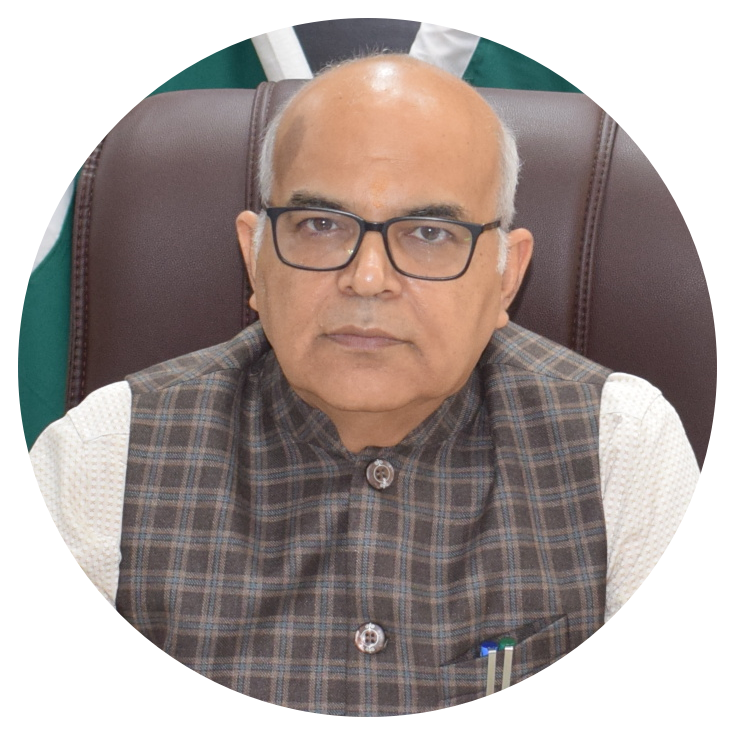Research & Development


Research Profile
Central University of Haryana, established in 2009, has created robust research facilities for fundamental and applied research. The faculty possesses a strong research background with exposure to world-class national and international laboratories. This strength is reflected in high-quality publications in reputed journals, patents, and successful grant implementations from agencies like DST (SERB & Inspire), DBT, UGC, ICMR, and ICSSR. The university has also received the DST-FIST grant to strengthen Life Science research.
Infrastructure: The university boasts state-of-the-art laboratories equipped with instruments like Gel Documentation Systems, RT-PCR, HPLC, Atomic Absorption Spectrophotometer, and more. Specialized facilities include Plant and Cell Culture labs, Genomic Workstations, and equipment for bioprocessing. The Central Instrumentation Centre houses High-Resolution Mass Spectrometers (LC-MS), Atomic Force Microscopes (AFM), and Benchtop NMR Spectrometers. Advanced computing facilities with software like MATLAB, NS2, and CloudSim are also available.
Major Areas of Research Specialization
- Plant Biochemistry, Secondary Metabolites, Genomics, Stress Physiology, Cancer Biology. (Department of Biochemistry)
- Microbial, Plant, and Animal Biotechnology for human welfare. (Department of Biotechnology)
- Bioenergy, Biofuels, Agricultural Microbiology, Medical Microbiology, Food Safety. (Department of Microbiology)
- Food & Nutrition, Functional Foods, Food Processing, Nutritional Biotechnology. (Department of Nutrition Biology)
- Ethnopharmacology, Nanoformulations, Standardization of Herbal Formulations, Neuropharmacology. (Department of Pharmaceutical Sciences)
- Hydro-geochemistry, Wastewater Treatment, Carbon Sequestration, Biofuels, Pollution Monitoring. (Department of Environmental Studies)
- Organic Synthesis, Green Chemistry, Nanotechnology, Material Science, Catalysis, Computational Chemistry. (Department of Chemistry)
- Rehabilitation Psychology, Positive Psychology, Organizational Behavior, Clinical & Health Psychology. (Department of Psychology)
- Wireless Networks, Cloud Computing, Machine Learning, IoT Security, Soft Computing. (Department of Computer Science & Engineering)
- Power Quality, Control Systems, Renewable Energy, Smart Micro-Grids, Electric Vehicles. (Department of Electrical Engineering)
- Differential Equations, Image Processing, Cryptography, Functional Analysis, Optimization. (Department of Mathematics)
- Banking & Finance, Behavioral Finance, Entrepreneurship, Corporate Governance, Marketing. (Department of Commerce)
- International Relations, Foreign Policy, Public Policy, Indian Government & Politics. (Department of Political Science)
🤝 Research Collaborations
The University has established collaborations with institutions such as Rajiv Gandhi University, Shandong University (China), USFDA, Alagappa University, IIT Indore, NIFTEM, NABI Mohali, CSIR-IHBT, and CSIC-CAIL (Spain). New MOUs are continuously being established to facilitate facility exchange.
🚀 Initiatives & Support
Research Promotion Board: Constituted under the Chairmanship of the Hon’ble Vice Chancellor to strengthen research activities.
GIAN (MHRD): The university has conducted programs under the Global Initiative of Academic Networks, facilitating interaction with distinguished foreign faculty.
Research Scholars: Opportunities for doctoral and postdoctoral research with fellowships from UGC, CSIR, ICMR, DBT, etc.



